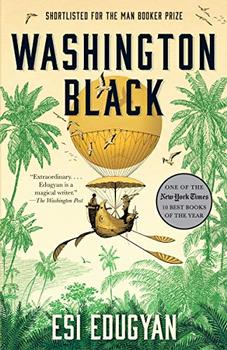Summary | Excerpt | Reviews | Beyond the book | Read-Alikes | Genres & Themes | Author Bio

A sweeping, Dickensian story of a young girl on a life-changing journey across nineteenth-century Ireland on the eve of the Great Famine.
Early one October morning, Grace's mother snatches her from sleep and brutally cuts off her hair, declaring, "You are the strong one now." With winter close at hand and Ireland already suffering, Grace is no longer safe at home. And so her mother outfits her in men's clothing and casts her out. When her younger brother Colly follows after her, the two set off on a remarkable odyssey in the looming shadow of their country's darkest hour.
The broken land they pass through reveals untold suffering as well as unexpected beauty. To survive, Grace must become a boy, a bandit, a penitent and, finally, a woman-all the while afflicted by inner voices that arise out of what she has seen and what she has lost.
Told in bold and lyrical language by an author who has already been called "one of his generation's very finest novelists" (Ron Rash, author of The Risen), Grace is an epic coming-of-age novel and a poetic evocation of the Irish famine as it has never been written.
Not just another historical novel, Grace is one of the most memorable and unique books I've read, its themes of despair, responsibility, guilt and hope stayed with me long after I'd finished it. The book is a vivid portrait of a person's struggle against adversity, of Ireland's terrible famine, made all the worse because it was avoidable and addressable if those of means had wanted it...continued
Full Review
 (566 words)
(566 words)
(Reviewed by Zoë Fairtlough).
Grace is set in an Ireland devastated by The Great Hunger—the potato famine of 1845-1852, which occurred when three successive harvests failed due to blight, causing a million people to starve to death and at least as many to emigrate for a better life. Ireland, Britain and America have all been shaped by its political, economic and social effects.
The blight, Phytophthora infestans — literally "infesting plant destroyer" — had arrived in Ireland from the Americas many years earlier but its impact would not have been disastrous had it not been for the confluence of two factors: unusually cool, wet weather for consecutive years, and the population's heavy reliance on two potato varieties particularly prone to the blight...

If you liked Grace, try these:

by Carys Davies
Published 2025
A stunning, exquisite novel from an award-winning writer about a minister dispatched to a remote island off of Scotland to "clear" the last remaining inhabitant, who has no intention of leaving—an unforgettable tale of resilience, change, and hope.

by Esi Edugyan
Published 2019
A dazzling new novel about a boy who rises from the ashes of slavery to become a free man of the world.